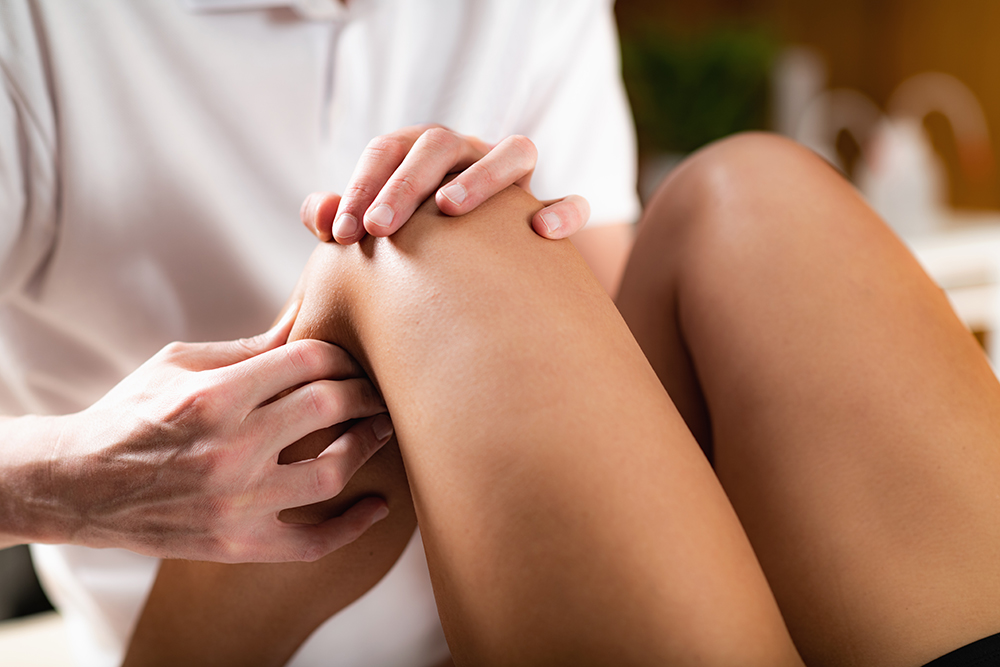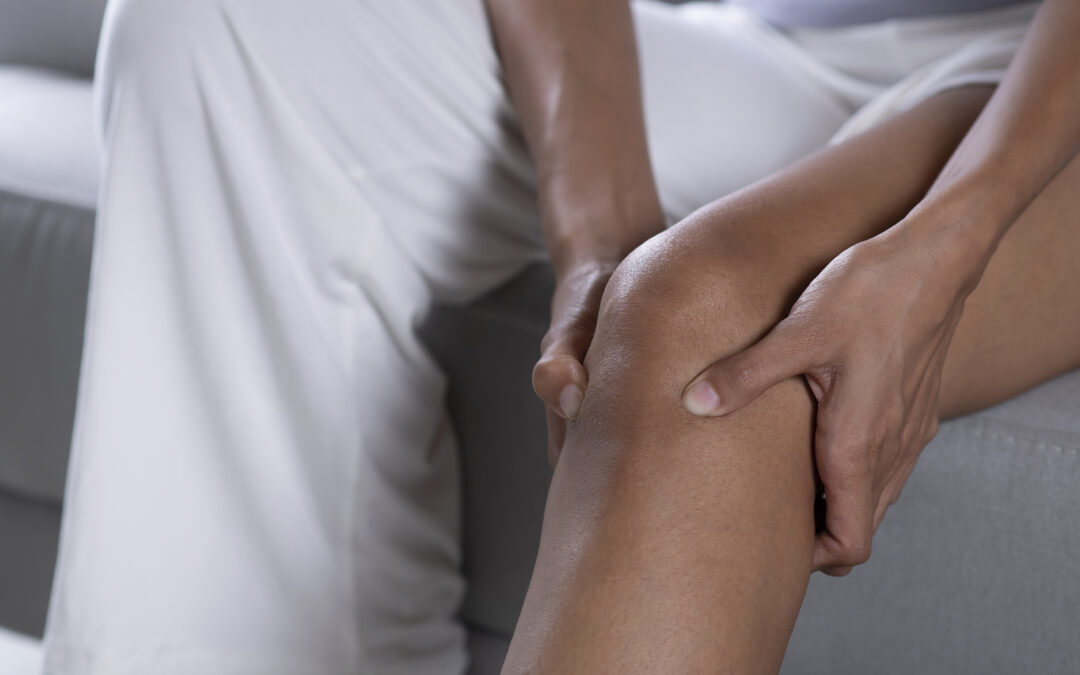Contents
The knee is made up of the femur (thighbone), tibia (shinbone), patella (kneecap) and the cartilage that covers the ends of the bones, which cushions them from rubbing against each other. It also has the meniscus, which helps provide shock absorption and cushioning during movement. The knee has four ligaments providing stability: the anterior cruciate ligament (ACL), the lateral collateral ligament (LCL), the posterior cruciate ligament (PCL) and the medial collateral ligament (MCL).
Knee pain is a common ailment bringing clients into physical therapy. Osteoarthritis is a frequent culprit of knee pain. Nearly 20% of American adults over the age of 45 suffer from osteoarthritis in their knees. Of this group, 13% of women and 10% of men over the age of 60 suffer from pain from their osteoarthritis.
While there is no cure for osteoarthritis, your doctor may refer you to physical therapy to help ease your pain and symptoms of your knee arthritis.
What to expect at your first physical therapy appointment for knee arthritis
Once you are in physical therapy, your treatment will be individualized to your needs. However, the first physical therapy appointment will be fairly standard to get you started.
You will want to wear loose-fitting clothing for your appointment. For best access to your knee, you may also want to wear loose-fitting shorts. If you need to, you should be able to change at the physical therapy clinic, whether it be in a dedicated changing room or the bathroom.
During your evaluation, your physical therapist will ask you questions about what brings you in. You should be prepared to answer questions such as:
- When and how did your pain begin?
- Does your pain affect your daily life?
- How often do you experience pain?
- Is there anything that currently helps your pain?
You should also bring a list of your current medications and share any other relevant medical history. These will aid your physical therapist in designing the best treatment plan for you.
After discussing your knee arthritis condition and concerns, your physical therapist will begin a physical examination of your knee. During this exam, be sure to communicate any pain or discomfort. Your initial exam may include:
- Testing your range of motion.
- Testing your strength.
- Testing your functional mobility.
- Palpating your knee to check for other potential issues.
After your initial examination, your physical therapist will formulate the best plan for your treatment. They will discuss the goals of your treatment and how you can generally expect your treatment to go. This initial appointment will likely take 45 minutes to an hour.
4 physical therapy techniques used for knee arthritis
After your initial evaluation, you will begin your physical therapy treatment. Your physical therapist may use one or a combination of techniques designed to help bring relief for your knee arthritis. Common techniques used include:
- Soft tissue mobilization — Soft tissue mobilization is a manual therapy technique used to help reduce muscle tension and potential fluid buildup. It is used to help relieve inflammation in arthritic joints such as the knee.
- Joint mobilization — Joint mobilization is another manual therapy technique that can help with joint pain and inflammation. It uses gentle exercises guided by a physical therapist to work the joints and surrounding tissue.
- Myofascial release — Myofascial release is a manual therapy technique where the physical therapist manipulates target tissue to help release tension in the muscles surrounding the affected joint. This in turn helps relieve pressure on the joint.
- Graston Technique® — The Graston Technique is an instrument-assisted technique that can help reduce pressure around the knee joint, which in turn can help reduce pain.
Lattimore PT can help provide relief for your knee arthritis pain
At Lattimore PT, we are confident our team of expert physical therapists can provide you with the best care to help relieve your knee arthritis pain. We can design an individualized plan for you to help improve your life. You shouldn’t suffer any pain longer than necessary. Let us help treat your knee pain.
Contact our team today for more information or to schedule an initial appointment.



